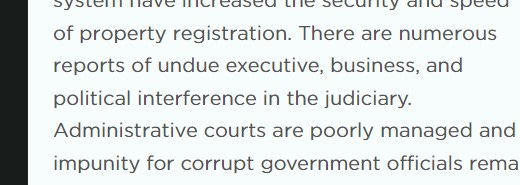Decline
It should come as no surprise to Macedonians or friends of Macedonia who follow the news and events there, that Macedonia is in decline in many ways. One of those, which is vital to any Macedonian regardless of ethnicity or any other category of identity, is in the realm of the economy. Everyone feels the pain of inflation, increased prices for basic items, the rising costs of electricity and petrol, and more. Such things cut across lines of political party affiliation, ethnic identification, gender, age, religious affiliation – everything. The SDS/DUI government can talk all it wants to about what they are doing in terms of the economy, but the facts remain: people are hurting. They are worried about being able to put food on the table and feed their kids. They are worried about being able to buy clothing for their children. And they are probably cutting back on basic small luxuries in life, like a weekend vacation. And yet the current government ignores all of this.
The most recent report by the respected Heritage Foundation on the issue of the economic freedom of countries points to just how bad things are in Macedonia, and it gets into the details. Their 2022 Index of Economic Freedom rates Macedonia as “moderately free” (which I’m sure will show up in government press releases), but also in decline. Macedonia ranks 53 in the world and 32 out of 45 countries in Europe (so, not in the top half), with its score below the regional average and in decline from last year.
Without getting into the actual score or rank which Heritage assigns to countries (which would require a more detailed explanation), suffice it to say that Heritage experts note that economic freedom peaked in 2018 and then began its decline. Setting aside 2020, the pandemic year in which almost all economies across the globe declined, Heritage notes that “The economy is lightly burdened by taxation, but fiscal health needs to be improved.” We can thank the previous government of VMRO for the light taxation burden.
Some highlights of the report are worth having a look at for they reveal the lie that the government tells the Macedonian population, the world, and itself. And it is worth quoting here in full:
Rule of Law
“Property rights and contractual rights are recognized, but their protection is inconsistent. Improvements in the cadaster system have increased the security and speed of property registration. There are numerous reports of undue executive, business, and political interference in the judiciary. Administrative courts are poorly managed and underfunded. Corruption and impunity for corrupt government officials remain serious problems.”
Not a surprise.
Government Size
“The individual income and corporate tax rates are a flat 10 percent. Other taxes include value-added and property transfer taxes. The overall tax burden equals 17.2 percent of total domestic income. Government spending has amounted to 32.8 percent of total output (GDP) over the past three years, and budget deficits have averaged 4.0 percent of GDP. Public debt is equivalent to 51.3 percent of GDP.”
The kindest thing I can say about the current government is that it left Gruevski’s 10 percent flat tax intact, the idea of a flat tax rate being something that center-right European governments have been adopting over the past decade plus and something which works wonders for an economy.
Regulatory Efficiency
“Regulations governing businesses are generally not overly rigid, but they do tend to change frequently, adding the specter of unpredictability to running a business in Macedonia. Labor costs are competitive, and the number of English speakers is high. According to the International Monetary Fund, government spending on subsidies for agriculture, social programs, and other sectors has increased steadily in the past five years.”
A note: markets and businesses hate unpredictability.
You can read the full report here, and it is worth noting that of Macedonia’s immediate neighbors, both Bulgaria and Albania rank higher on the overall index (Serbia, Greece, and Kosovo rank below). Also of note: in 2016, the last full year of the VMRO government, Macedonia ranked 40 in the world (the United States ranked 36 in 2016).
While a report such as the Heritage report is useful in verifying what the majority of Macedonians already know – that Macedonia is in decline – it doesn’t address the issue of what to do about it.
The SDS/DUI government will dance around such facts all day long. They will issue press releases and hold press conferences stating that “its not their fault,” “it’s Putin’s inflation” (a favorite – but false – talking point of US President Joe Biden), that “they are doing everything they can to make things better,” and that “we are the only government that can avert disaster” in Macedonia. And yet Macedonians can see right through these lies and falsehoods.
The truth is that a government built on a party such as the leftist SDS (which, before 1991 was the League of Communists of Macedonia), together with a party built on a terrorist organization intent on ripping Macedonia in half (DUI) can never, ever achieve economic success, firstly because their policies and priorities are all wrong and secondly because they are, by and large, corrupt.
If Macedonians want to see Macedonia succeed – not just survive – then Macedonia needs new leadership, full stop. But it is up to Macedonians to make that happen.


